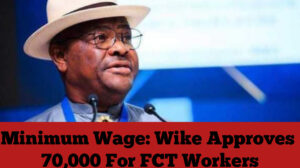A former governor from Russia’s Far East has been sentenced to 22 years in jail for murder and attempted murder in a controversial court case in Moscow.

Sergei Furgal insists he is innocent and says the trial against him was motivated by politics.
He was elected governor of Khabarovsk region in 2018, unexpectedly beating the Kremlin’s preferred candidate.
His detention in July 2020 caused widespread anger among locals.
The judge in Luberetsky Court near the capital ruled that Furgal, 52, must serve his sentence in a high-security prison after a jury found him guilty on two charges of murder and one of attempted murder.
The killings, said the prosecution, were linked to rivalry between Furgal and other businessmen in 2004 and 2005.
The ex-governor – who won office as a candidate for the ultranationalist Liberal Democratic Party of Russia (LDPR) – struggled to contain his emotions in the courtroom after the sentence was read out, shouting “Do you have no shame?” at the judge. His lawyers say they will appeal.
When he was first arrested, residents in the city of Khabarovsk took to the streets in huge numbers – some estimates put the figure as high as 50,000. Such demonstrations are rare in Russia and took the Kremlin by surprise.


Furgal’s supporters claimed that the criminal case against him was politically motivated – punishment for daring to beat the Kremlin’s candidate in elections.
Experts say his landslide victory was the result of a massive anti-Moscow vote. As governor, he was tough-talking, and some say more popular even than President Vladimir Putin.
Contract killings of business rivals were common in Russia, especially in the 1990s and the early 2000s, when Furgal was a successful businessman.
However, the case is more likely to be linked to his unique position – as a popular local politician who didn’t show absolute loyalty to the Kremlin.
“Furgal may well have been involved in shadowy business in the past, but so too were many of the other regional leaders whom Putin has been happy to support,” Russia expert Mark Galeotti told the BBC. “It seems clear that this was essentially a political move: once the Kremlin decided Furgal had to go, they looked for whatever excuse they could use.”
The Khabarovsk protest movement in 2020 was unusual for two reasons. Firstly, it was grassroots-based: meaning the authorities could not simply arrest the ringleaders.
Secondly, it was focused on a single local issue – the arrest of the governor – making it very difficult for the Kremlin to pin the blame on the West or on “foreign forces” – as is the usual tactic.
But in the weeks that followed, arrests were made, and the demonstrators were eventually silenced or pushed off the streets.
President Putin appointed a new governor, Mikhail Degtyaryov, who also represents the LDPR. Mr Degtyarov, though, is a Kremlin loyalist and recently became a vocal supporter of Russia’s war in Ukraine.
BBC




